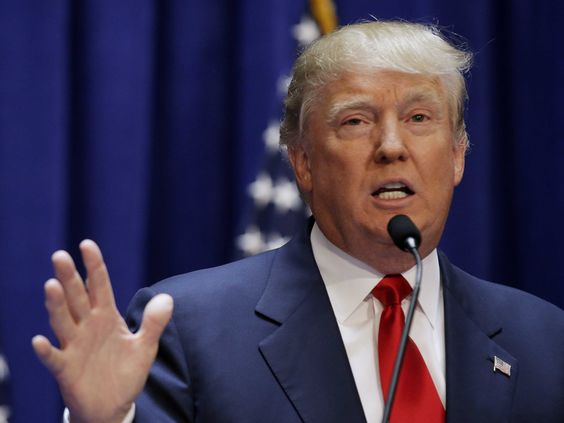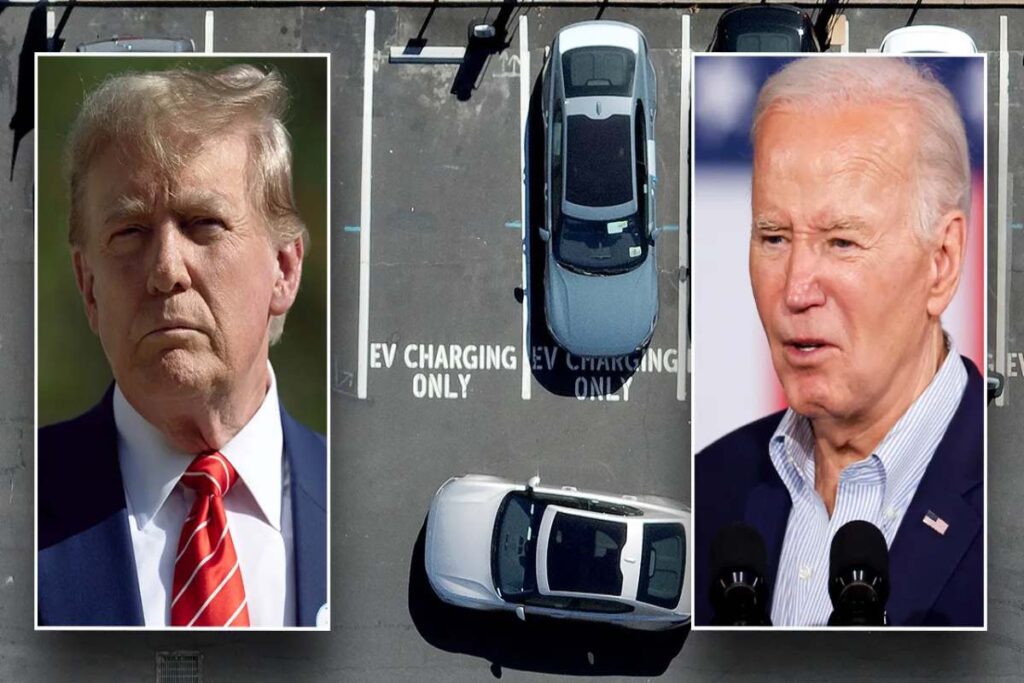A retort aimed squarely at the Biden administration showed the Trump campaign’s critique of the newly minted regulations targeting gas-guzzling cars. With defiance, they criticized the climate crackdown revealed by the White House and EPA. Additionally, they labeled it as a direct assault on American wallets and freedom of choice.
They promised that if Trump wins in the upcoming electoral showdown, he’ll swiftly obliterate these regulations. This will spare the nation from the burden of pricey electric vehicles and preserve the sanctity of consumer choice.
In another statement aimed at Joe Biden’s administration, Karoline Leavitt, the national press secretary for the Trump campaign, didn’t hold back. With razor-sharp precision, she dismantled Biden’s electric vehicle mandate. She called it a reckless scheme that would force hardworking Americans into purchasing unaffordable cars they neither desire nor can afford.
With a call to arms, Leavitt decried the policy as not just anti-jobs and anti-consumer but fundamentally un-American. She warned of the catastrophic fallout, predicting the decimation of the U.S. auto industry jobs to China. Promising further action, she vowed that Trump would reverse Biden’s extreme mandate on his first day back in office.
ALSO READ: Trump vs. Musk: A Debate on Tariffs and Cryptocurrency
Defending American Workers
In a counterattack against Biden’s climate crusade, Trump started the battle for blue-collar autoworkers. Trump’s fierce commitment to American workers was on full display during the United Auto Workers strike, where he vowed to protect their interests above all else.

Now, faced with Biden’s regulations, Trump warns that a forced EV transition spells doom for the industry and the livelihoods of hardworking Americans. The most stringent tailpipe emissions restrictions ever proposed will kick in from 2027 onwards.
Notably, Trump’s camp stands firm against this assault, recognizing that by 2032, Biden’s roadmap would leave little room for anything but battery electric and plug-in hybrid vehicles. However, in the face of such adversity, Trump pledges to protect American jobs and uphold the integrity of the auto industry.
Biden’s Vision Vs. Industry Realities
The EPA outlined a “low-cost” model to reshape the automotive landscape. The model mandates that over two-thirds of new cars by 2032 be either zero-emission or low-emission. Administration officials laid down the gauntlet: 56% of light-duty car sales must be battery electric, with an additional 13% as hybrids. What does this mean? A future dominated by electrified vehicles.
ALSO READ: Kris Jenner’s Sister Karen Houghton Dies at 65
Biden, unbothered by the uproar, doubled down on his ambitious vision. Proudly mentioning his past achievements, he noted the collaboration with American automakers and autoworkers as the catalyst for historic progress.
With factories expanding and private investment growing, Biden painted a picture of a future filled with good-paying union jobs. Additionally, he reaffirmed his goal for 2030, pledging to propel the nation forward into a new era of sustainable transportation.
The EPA Regulations
The EPA’s new regulations were criticized on multiple fronts. Energy industry titans, farm groups, consumer advocates, and Republican lawmakers wasted no time denouncing the rules. They pledged to wield legislative power in their quest to overturn them.

The Alliance for Automotive Innovation offered a statistic. Although electric and plug-in hybrid car purchases saw a modest increase, reaching 9.3% of total purchases last year, the growth was primarily confined to California and urban areas.
This glaring urban-rural divide shows the challenges facing the widespread adoption of electric vehicles, fueling the debate surrounding the EPA’s regulations.
The White House’s Silence
Electric vehicles are more expensive compared to their gas-powered counterparts. Despite federal and state subsidies attempting to level the playing field, the average cost of an EV stands at $52,500, nearly double that of the average subcompact car priced at $24,000.
As consumers battle with transition calculations, the White House’s silence speaks volumes. When Fox News Digital asked for a comment, the administration did not respond to concerns over affordability and accessibility in the EV market.
The debate rages on, with the cost casting a shadow over the push for electrification. This further leaves the future of automotive innovation hanging in the balance. What do you think is going to play out?
You Might Also Like:
Birkin Handbag Maker, Hermes Faces Class Action Lawsuit
Josh Peck Speaks on “Quiet on Set” Documentary, Calls for Industry Change
Aaron Taylor Johnson Slams Hate Over Age Gap With Wife, Says It’s Bizarre
Shakira Says Having a Husband Dragged Her Down, Being Single Is Best for Career
